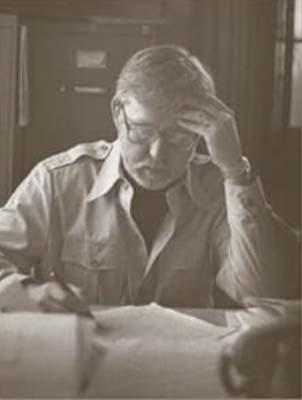Autumn 2025 Featured Book Review
“Wyr gleuben all an eynen Gott.” Das Nicaeno-Constantinopolitanum in seiner Bedeutung für Martin Luther und Philipp Melanchthon.
By Jennifer Wasmuth. Tübingen: Mohr Siebeck, 2024. 586 pp. + xvi.

Reviewed by Robert Kolb
Martin Luther and Philip Melanchthon anchored their call for reform in Holy Scripture and understood it as the Word of the Holy Trinity, whose identity is summarized and confessed authoritatively in the creeds of the ancient church. In his Three Symbols or Creeds of the Christian Church (1538), Luther treated the Apostles’ Creed, the Athanasian Creed, and the Te Deum Laudamus, printing the Nicene Creed at the end with the brief comment, “it is sung in the mass every Sunday” (Luther’s Works 45:228). Wasmuth finds that the Apostles’ Creed assumed great significance for Luther as a catechetical tool and that the Athanasian Creed provided him with the terminology that he used in explicating his doctrine of God and demonstrating his catholicity. In contrast, Luther seldom discussed the Nicene Creed explicitly in sermons and theological treatises; however, Wasmuth shows that its terms and phrases supplied him with fundamental elements of his confession of faith. Even in the disputations of his later years that touched on Trinitarian issues, his attention to the Nicene Creed was largely reactive to others’ use of it. Nonetheless, it fed into his Trinitarian and Christological positions as a decisive secondary authority.
Read the entire review HERE

Reviewed by Robert Kolb
Martin Luther and Philip Melanchthon anchored their call for reform in Holy Scripture and understood it as the Word of the Holy Trinity, whose identity is summarized and confessed authoritatively in the creeds of the ancient church. In his Three Symbols or Creeds of the Christian Church (1538), Luther treated the Apostles’ Creed, the Athanasian Creed, and the Te Deum Laudamus, printing the Nicene Creed at the end with the brief comment, “it is sung in the mass every Sunday” (Luther’s Works 45:228). Wasmuth finds that the Apostles’ Creed assumed great significance for Luther as a catechetical tool and that the Athanasian Creed provided him with the terminology that he used in explicating his doctrine of God and demonstrating his catholicity. In contrast, Luther seldom discussed the Nicene Creed explicitly in sermons and theological treatises; however, Wasmuth shows that its terms and phrases supplied him with fundamental elements of his confession of faith. Even in the disputations of his later years that touched on Trinitarian issues, his attention to the Nicene Creed was largely reactive to others’ use of it. Nonetheless, it fed into his Trinitarian and Christological positions as a decisive secondary authority.
Read the entire review HERE
Related posts

